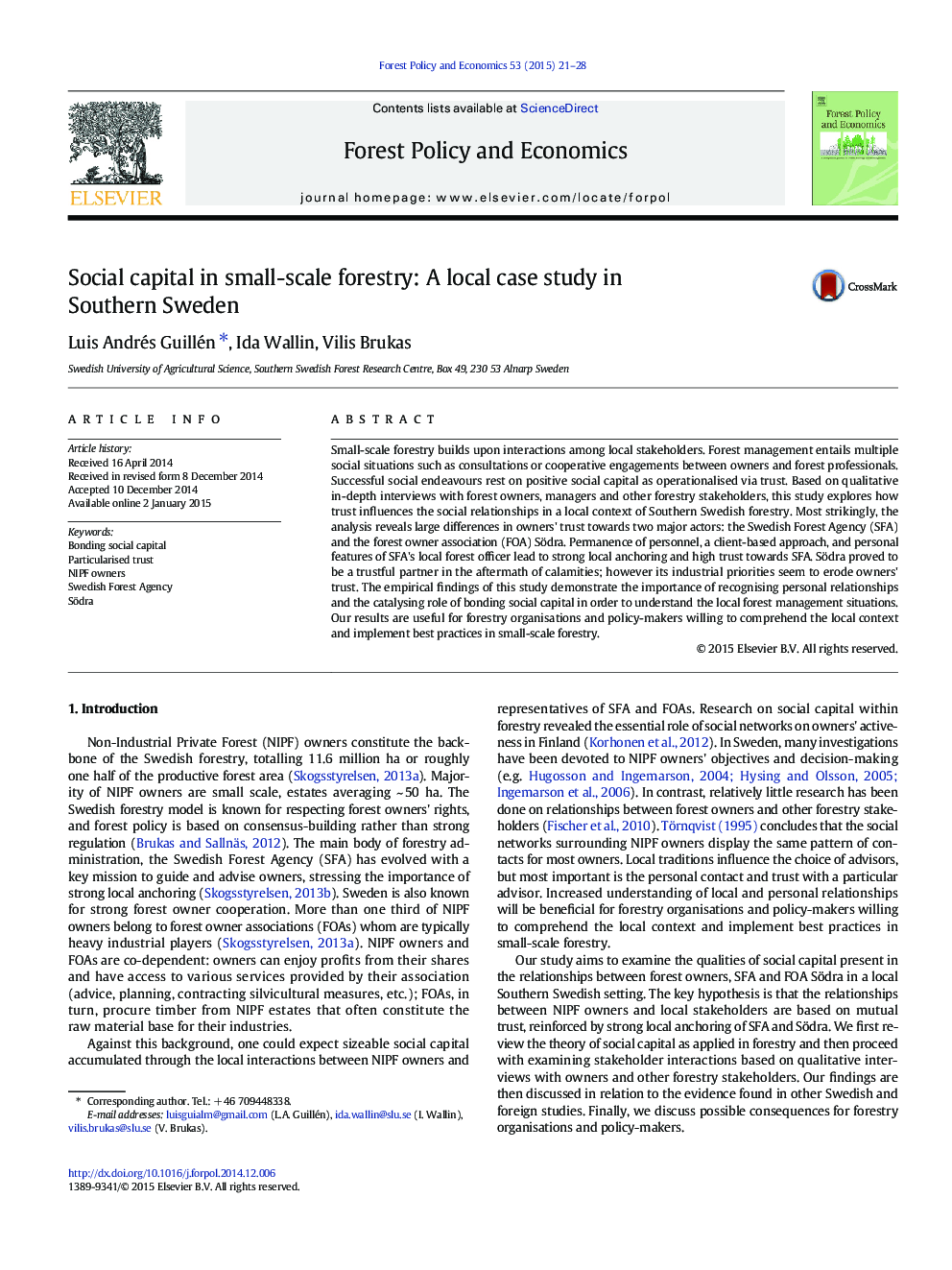| Article ID | Journal | Published Year | Pages | File Type |
|---|---|---|---|---|
| 91428 | Forest Policy and Economics | 2015 | 8 Pages |
•The study examines social capital in a local setting of Southern Swedish forestry.•Forest owners show trust in the well-anchored local office of forest agency.•Industrial priorities of NIPF owner association Södra erode trust of its members.•Södra was a trustful partner in the aftermath of calamities.•Personalised approach, stability & commitment are keys for trustful relationships.
Small-scale forestry builds upon interactions among local stakeholders. Forest management entails multiple social situations such as consultations or cooperative engagements between owners and forest professionals. Successful social endeavours rest on positive social capital as operationalised via trust. Based on qualitative in-depth interviews with forest owners, managers and other forestry stakeholders, this study explores how trust influences the social relationships in a local context of Southern Swedish forestry. Most strikingly, the analysis reveals large differences in owners' trust towards two major actors: the Swedish Forest Agency (SFA) and the forest owner association (FOA) Södra. Permanence of personnel, a client-based approach, and personal features of SFA's local forest officer lead to strong local anchoring and high trust towards SFA. Södra proved to be a trustful partner in the aftermath of calamities; however its industrial priorities seem to erode owners' trust. The empirical findings of this study demonstrate the importance of recognising personal relationships and the catalysing role of bonding social capital in order to understand the local forest management situations. Our results are useful for forestry organisations and policy-makers willing to comprehend the local context and implement best practices in small-scale forestry.
